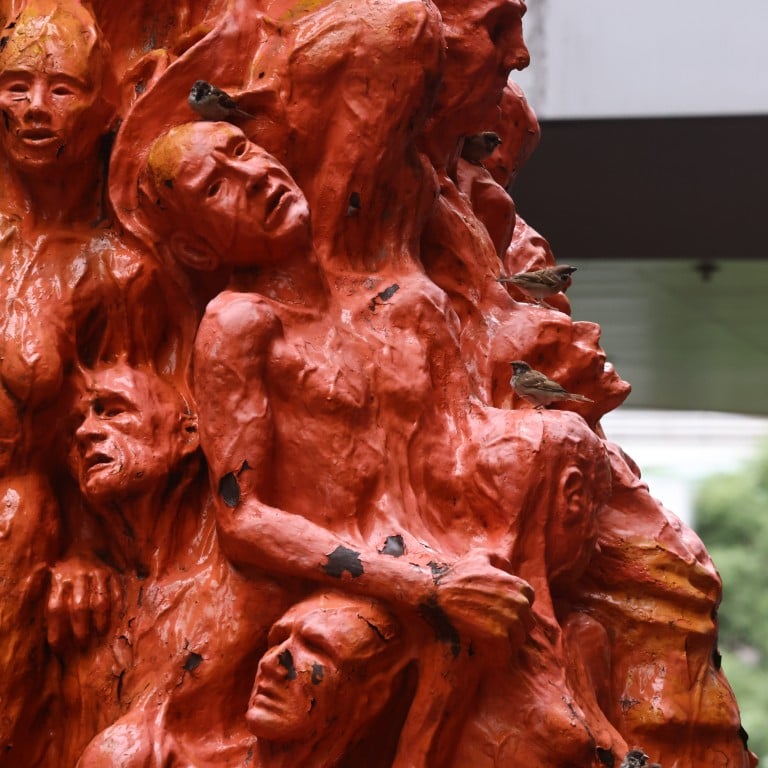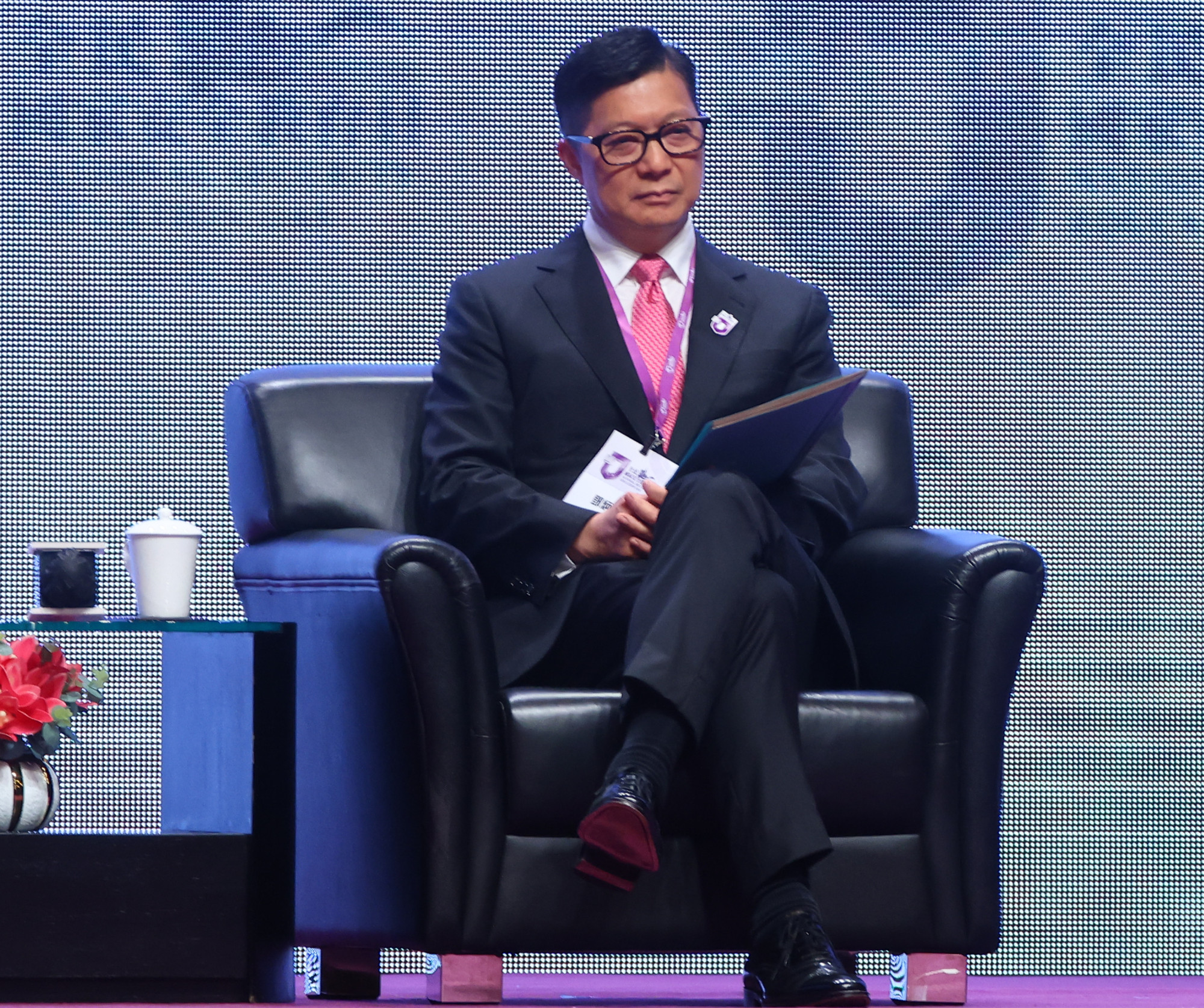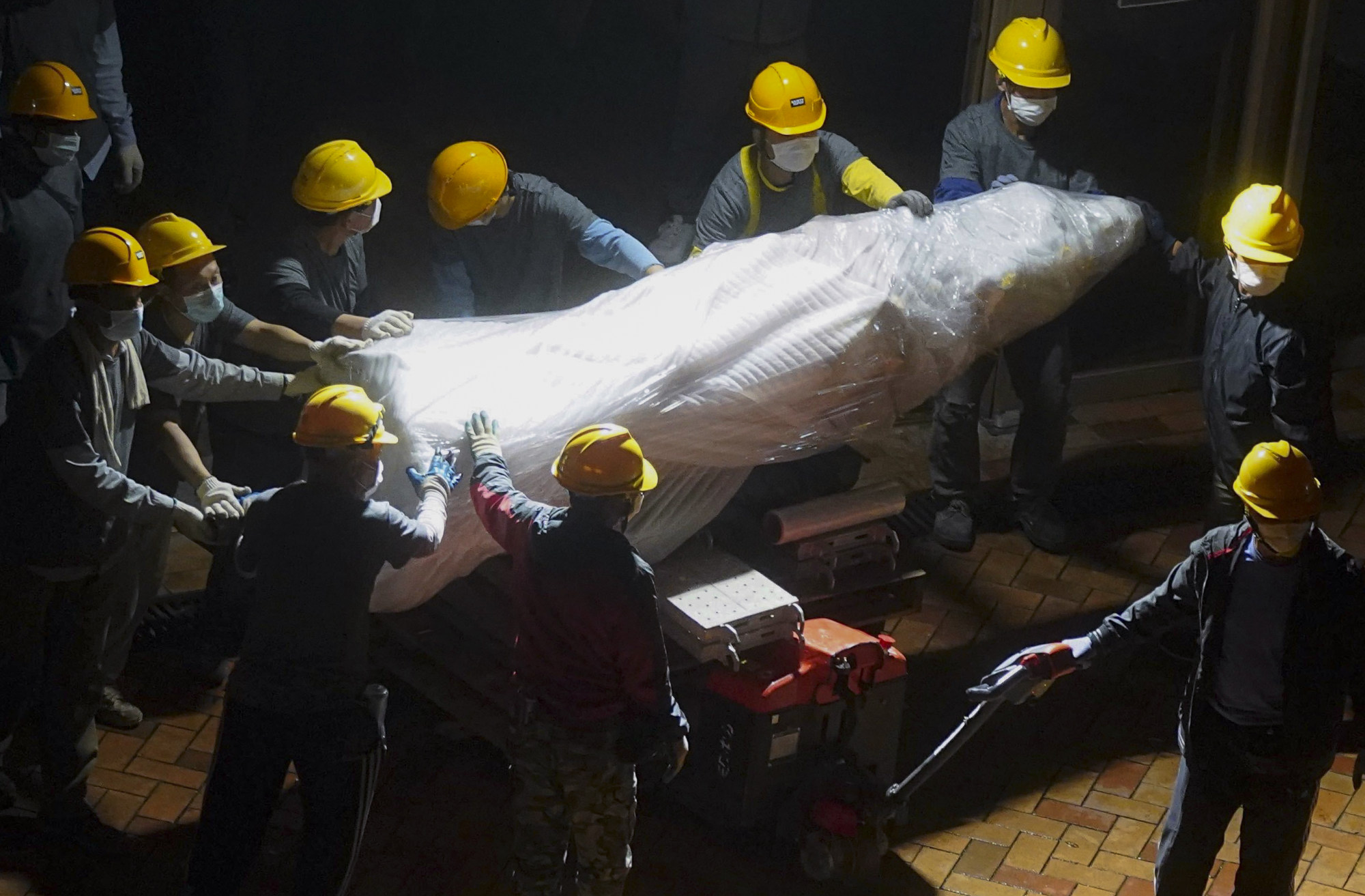
Hong Kong security chief says seizing of ‘Pillar of Shame’ unrelated to coming Tiananmen Square crackdown anniversary
- Secretary for Security Chris Tang says decision to take sculpture marking 1989 crackdown in Beijing was not based on any ‘special consideration’
- Minister stops short of revealing whether police will approve any commemorative events for June 4, warns people could take ‘advantage of these occasions’
Secretary for Security Chris Tang Ping-keung on Saturday also stopped short of saying whether police would approve any events marking June 4, arguing the city still faced national security threats with “many people taking advantage of these occasions”.
Appearing on a radio programme, the minister defended a decision by national security police to seize the Pillar of Shame, a sculpture portraying the victims, in connection with a subversion case on Friday.
“[The approach of June 4] is not a special consideration,” he said. “We took the action in accordance with the stage of the investigation. The legal proceedings are still ongoing. I cannot reveal any details … We will continue to search for more evidence to support the prosecution work.”

The sculpture had stood at the University of Hong Kong’s campus since 1997 and was regularly displayed at the annual June 4 vigil in Victoria Park. But the university’s management moved the artwork to its Kadoorie Centre in Yuen Long in December 2021.
A university spokesman on Friday confirmed officers with a search warrant had removed “a piece of evidence” from the centre.
Enacted in 2020, the law bans acts of secession, subversion, terrorism and collusion with foreign forces.
Czech-based NGO DEI, an organisation formed by members of Hong Kong’s cultural and art industry, started a petition calling for the statue’s immediate return to Galschiøt, a move the Security Bureau said amounted to “disregarding the law under the guise of freedom of art”.
Hong Kong police seize ‘Pillar of Shame’ statue in connection with subversion case
Hong Kong has been the only city on Chinese soil to organise large-scale activities mourning those killed in Tiananmen Square in 1989. In 2020, police banned the vigil at Victoria Park, citing public health concerns amid the Covid-19 pandemic, but an estimated 20,000 people still turned up, including 26 opposition leaders who were later arrested and charged with unauthorised assembly.
Police banned the vigil again the following year, citing risks to public health and invoking the Public Order Ordinance to shut down the park.
Former vice-chairwoman Chow Hang-tung is awaiting trial on subversion charges, along with the group’s ex-chairman Lee Cheuk-yan and former vice-chairman Albert Ho Chun-yan.

Tang on Saturday stressed the force would act in accordance with the law when deciding whether to allow any vigils next month and would assess such factors as the theme and whether malicious people could hijack the event.
Asked whether approval would be more likely if participants agreed to sit peacefully in the park and the vigil solely focused on commemorating the June 4 victims without chanting other slogans, Tang said it was not a simple decision and needed a risk assessment.
“The city still faces a high risk of national security threats,” he said. “Many people want to take advantage of these occasions.”
Pillar of Shame sculpture removed from Hong Kong campus in middle of night
During a visit last month, Xia Baolong, Beijing’s key official in charge of the city’s affairs, said demonstrations were not the only way for residents to express their views.
Tang on Saturday dismissed concerns that people would be discouraged from applying for permission to hold rallies following Xia’s remarks.
Richard Tsoi Yiu-cheong, a former standing committee member of the alliance, said he was unsure whether the seizure of the statue was related to the subversion case concerning the three former leaders. But it would be “hard to understand” if the artwork was related to the police investigation, which had been active for more than a year and a half, he added.
With the alliance gone, it remains to be seen whether any other groups will seek to hold a June 4 rally.
“Under the current political environment and legal framework, including the national security law, I believe applications may not be granted,” Tsoi said.
Separately, security minister Tang defended the need to remove “unnecessary” recruitment criteria for police officers and denied authorities were lowering their standards.
Hong Kong police ease recruitment criteria to boost flagging interest
From last Friday, applicants are no longer required to meet previous height and weight thresholds, and those who failed public examinations can also take a new Chinese and English-language written test to qualify. The force is contending with a 17 per cent manpower shortage.

